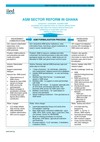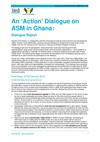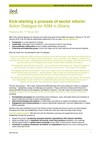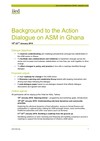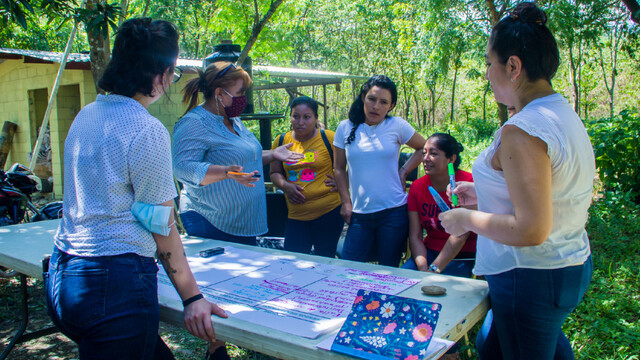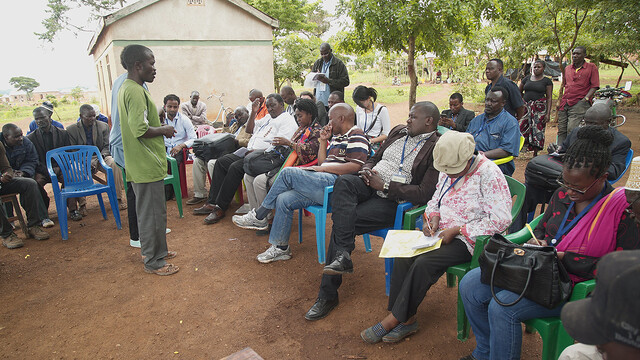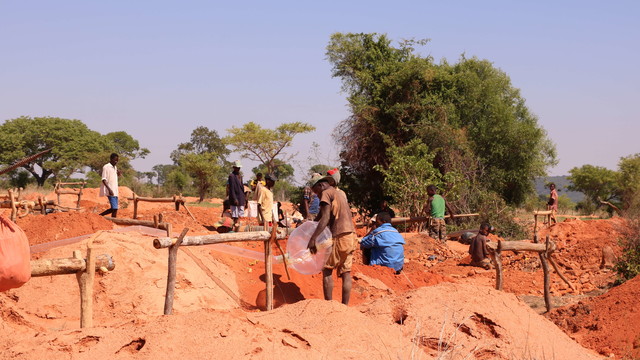Delivering solutions through multi-stakeholder dialogue
Through dialogue, IIED is providing a neutral space for stakeholders to identify solutions to the challenges facing the artisanal and small-scale mining (ASM) sector. Dialogue will be grounded in local context with parity of voice across all the key stakeholders, including artisanal and small-scale miners themselves.

Artisanal and small-scale mining accounts for 20 per cent of world gold production (Photo: Travis Lupick, Creative Commons, via Flickr)
Artisanal and small-scale mining (ASM) is a complex development challenge, with social, economic, environmental and governance dimensions.
ASM communities are hugely diverse, facing a range of livelihood realities that demand specific and durable solutions. But the sector has huge potential to bring transformative change for local and national development – offering significant income earning and employment opportunities to poor communities in remote areas.
ASM, governments, mining companies, NGOs and donors have roles to play in bringing about this change, but cannot act alone. Such change requires holistic, trust-building and rights-based responses with improved relations across the sector.
Now is the moment for action with more stakeholders engaging with ASM and beginning to view it in a new light.
Solutions through dialogue
IIED's multi-stakeholder dialogue for ASM is offering a space for stakeholders with roles to play in supporting inclusive governance and better livelihoods to explore how improved relations can support these goals. This includes ASM communities themselves.
In late 2014, IIED started to engage with stakeholders, who have confirmed the need for a multi-stakeholder dialogue grounded in local activities. Such a dialogue should:
- Move beyond talking shops, to address how to implement solutions
- Make sure the right people are at the table, to enable shared solutions to be implemented with clear roles and responsibilities
- Focus dialogue at the local level, so global dialogue is informed and driven by local realities
- Not replicate good work already done, but collaborate with those with scalable and replicable solutions
- Focus on common hopes, fears and approaches, and thus break stalemates
- But offer the space to challenge widely held worldviews on the ASM sector that have hindered progress in the past, and
- Bring new voices into the debate – especially the marginalised and excluded (whether the artisanal miner or the company geologist) – in ways that work best for them.
In order to move towards a mining sector that is inclusive of ASM, we need to share experiences of what works in ways that help all players to challenge misconceptions and replicable and scalable principles for ASM.
Ultimately, addressing governance and livelihoods requires a multi-stakeholder response based on dialogue and action, informed by realities and stakeholders on the ground.
Newsletter
Keen to learn more about our work to support inclusive and responsible mining and receive the latest progress updates?
Publications
Additional resources
Governments, large- and small-scale mining: beginning a dialogue, Abbi Buxton (2014), IIED
Scoping a green economy: a brief guide to dialogues and diagnostics for developing countries, Steve Bass (2013), IIED

